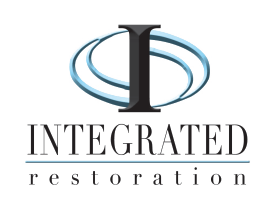Cleveland Wind Damage: How to Spot (and Fix) Wind Damage Before It Spreads
When a powerful windstorm rolls through Northeast Ohio, the damage isn’t always obvious—until it gets worse. From missing shingles and cracked siding to fallen branches and hidden leaks, wind damage can affect your roof, gutters, siding, and even your home’s structure.
Whether you're a homeowner or managing a commercial property, here's what to watch for—and what to do when wind leaves a mark.
How to Spot Wind Damage After a Storm
Not all storm damage is dramatic. In fact, some of the most expensive damage starts out subtle. After a high-wind event, take a close look at your property for signs like:
Missing or curled shingles
Cracked, loose, or missing siding panels
Damaged soffit, fascia, or flashing
Fallen branches or debris on the roof
Leaning fences or downed gutters
Interior water stains after heavy wind-driven rain
If you spot any of these warning signs, call a professional before a small issue turns into water intrusion, mold, or structural deterioration.
Common Wind Damage in Cleveland (and Why It’s a Problem Here)
Living near Lake Erie means we're no strangers to intense wind events—especially in spring and fall. Here’s why Cleveland properties are particularly vulnerable:
Older housing stock: Aging roofs and siding are more likely to fail under wind pressure.
Heavy tree coverage: Fallen limbs and uprooted trees are a major source of roof and gutter damage.
Lake-effect weather: Wind-driven rain and snow can push moisture into tiny cracks and crevices.
Flat or low-slope roofs: Common in commercial buildings and some mid-century homes, these are more prone to pooling and wind lift.
Learn more about our residential restoration services and commercial restoration services.
What to Do After a Windstorm
When the storm passes, here’s how to stay safe and take action:
Check for immediate safety hazards (downed lines, broken glass, structural shifts).
Inspect your roof, siding, and gutters from the ground—don’t climb!
Take photos of any damage for insurance documentation.
Call a local restoration professional to perform a full damage assessment.
Cover exposed areas (e.g., tarps for missing shingles) until repairs begin.
Need emergency tarping or temporary repairs? Our team is available 24/7 to respond fast.
Repairing Wind Damage the Right Way
At Integrated Restoration, we don’t just patch things up—we fix them for good. Here’s how we restore your property:
Emergency response & tarping to prevent further damage
Roofing and siding repair for both residential and commercial buildings
Structural inspection and repair, if needed
Water damage cleanup if the wind led to leaks
Curious about our insurance support process? Here’s how we help with insurance claims.
Preventing Wind Damage in the Future
You can’t stop storms—but you can reduce your risk:
Schedule regular roof and siding inspections
Keep trees trimmed away from structures
Clean and secure gutters before storm season
Repair loose shingles, flashing, or siding early
Secure outdoor furniture and fixtures
Need a recommendation? Our team is happy to provide a roof and siding inspection and help you make a prevention plan. Call us today to get started.

